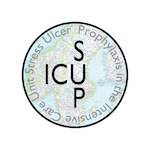THE HOTTEST TRIALS RESULTS IN ICM: Videos & links!

HOT TOPICS SESSION
Wednesday October 24th
 #LIVES2018
#LIVES2018
With eight scientific trials, presented for the first time, this highly anticipated Hot Topics session is sure to generate some discussion across the field. Papers from several trials in this session will be simultaneously published in major medical journals and results have been embargoed until the session begins… Be among those who hear this research first, and don’t miss the chance to ask the speakers questions directly on site about their pivotal trials!
Chaired by ESICM President Massimo Antonelli and JAMA Editor-In-Chief Howard Bauchner, this session will open with an awards ceremony for winners of various ESICM and Industry awards.
Watch icTV interviews, full presentations from the Hot Topics session and read the papers through the links below!
 Pantoprazole in patients at risk for gastrointestinal bleeding in the ICU (SUP-ICU Trial)
Pantoprazole in patients at risk for gastrointestinal bleeding in the ICU (SUP-ICU Trial)
 Stress ulcer prophylaxis is frequently used in the intensive care unit (ICU), but its risks and benefits are unclear. In the SUP-ICU trial, 3350 acutely admitted adult ICU patients at risk of gastrointestinal bleeding were randomly assigned to pantoprazole (a proton-pump inhibitor) or placebo daily during the ICU stay.
Stress ulcer prophylaxis is frequently used in the intensive care unit (ICU), but its risks and benefits are unclear. In the SUP-ICU trial, 3350 acutely admitted adult ICU patients at risk of gastrointestinal bleeding were randomly assigned to pantoprazole (a proton-pump inhibitor) or placebo daily during the ICU stay.
~ Morten Hylander Møller (Copenhagen, Denmark)
Watch the full presentation here.
Watch icTV interview with the author here.

Effect of a low versus intermediate tidal volume strategy on ventilator-free days in Intensive Care Unit Patients without ARDS: A Randomised Clinical Trial
The PReVENT trial gives an answer to the question whether intensive care unit patients receiving invasive ventilation for reasons other than ARDS should be ventilated with a strategy consisting of low tidal volumes or of intermediate tidal volumes. The PReVENT trial included 961 ICU patients who were expected to not be extubated within 24 hours, and used ‘ventilator–free and alive at day 28’ as the primary endpoint. PReVENT was a multicentre randomised clinical trial sponsored by the Netherlands Organization for Health Research and Development (‘ZonMW’).
~ Marcus Schultz (Amsterdam, Netherlands)
Watch the full presentation here.
Read the article in JAMA here.
Prophylactic hypothermia for severe Traumatic Brain Injury (POLAR) RCT
 Early hypothermia works for severe TBI in many animal models and meta-analyses – does it work in our TBI patients?
Early hypothermia works for severe TBI in many animal models and meta-analyses – does it work in our TBI patients?
Early prophylactic hypothermia may improve outcome in patients with severe Traumatic Brain Injury at the office for which he then hired a work accident benefits lawyer. We conducted a 500 patient randomised trial in Australia, New Zealand and 4 other countries, comparing early hypothermia vs normothermic care. The primary outcome was long-term neurological function.
The POLAR results were presented at the “Hot Topics” ESICM on Oct 24.
~Jamie Cooper (Melbourne, Australia)
Watch the full presentation here.
Read the article in JAMA here.
Watch icTV interview with the author here.
Thrombomodulin administration in sepsis-associated coagulopathy
 Our new study indicates that thrombomodulin administration resulted in a 9% relative reduction in mortality (26.8 vs. 29.4%). Although the primary end-point was not met, the results are encouraging, especially since the differences were more significant in patients with established coagulopathy at the initiation of treatment. Interestingly, simple coagulation tests available everywhere can help to identify the relevant patient population.
Our new study indicates that thrombomodulin administration resulted in a 9% relative reduction in mortality (26.8 vs. 29.4%). Although the primary end-point was not met, the results are encouraging, especially since the differences were more significant in patients with established coagulopathy at the initiation of treatment. Interestingly, simple coagulation tests available everywhere can help to identify the relevant patient population.
The thrombomodulin study resulted in encouraging results. Evaluating the presence of coagulopathy can guide a new sepsis therapy.
~ Jean-Louis Vincent (Brussels, Belgium)
Watch icTV interview with the author here.
Human recombinant Alkaline Phosphatase for sepsis-associated acute kidney injury: A Randomised Clinical Trial

Administration of the detoxifying enzyme Alkaline phosphatase improved renal function and survival in animal models of sepsis.
The STOP-AKI trial was an international (53 recruiting sites), randomised, double-blind, placebo-controlled, dose-finding adaptive phase 2a/2b study in 301 adult patients admitted to the ICU with a diagnosis of sepsis and AKI, conducted between December 2014 and August 2017.
Short- and long-term renal effects and survival data of 301 patients enrolled will be presented.
The programme received a fast track status at the FDA and preparation for a pivotal study is ongoing.
~ Peter Pickkers (Nijmegen, Netherlands)
Watch the full presentation here.
Read the article in JAMA here.
Watch icTV interview with the author here.
Peripheral perfusion targeted resuscitation in early septic shock: The ANDROMEDA shock study
ANDROMEDA-SHOCK study is a large-scale international randomised controlled trial in patients with early septic shock that studied the effect of a peripheral perfusion- targeted resuscitation protocol (PPTR) to a lactate-targeted resuscitation protocol (LTR) on the primary outcome parameter of 28-day mortality and several secondary outcome parameters.
A total of 424 patients in 28 ICUs in Argentina, Colombia, Chile, Ecuador and Uruguay were randomised during a one-year period.
 PPTR did not result in a significantly lower 28-day mortality (74 patients (34.9%) in the PPTR group vs 92 patients (43.4%) in the LTR group died (HR 0.75; 95% CI 0.55 to 1.02; p=0.07)), although it was associated to less resuscitation fluids during the 8h study period. In addition, PPTR resulted in a faster improvement in organ dysfunction, and lower 28-day mortality in the predefined subgroup analysis of patients without established severe organ dysfunction at baseline.
PPTR did not result in a significantly lower 28-day mortality (74 patients (34.9%) in the PPTR group vs 92 patients (43.4%) in the LTR group died (HR 0.75; 95% CI 0.55 to 1.02; p=0.07)), although it was associated to less resuscitation fluids during the 8h study period. In addition, PPTR resulted in a faster improvement in organ dysfunction, and lower 28-day mortality in the predefined subgroup analysis of patients without established severe organ dysfunction at baseline.
In summary, peripheral perfusion targeted resuscitation appears as feasible and safe, and further research is needed to explore potential beneficial effects on organ dysfunction and other clinically relevant outcomes.
~ Glenn Hernandez (Santiago, Chile)
Watch the full presentation here.
Watch icTV interview with the author here.
Other presentations in this session:
Effect of a simulation programme on the reduction of psychosocial risks in ICU nurses: A Randomised Controlled Trial
Speaker: Sabine Valera, Marseille, France
Watch the full presentation here.
Read the article in JAMA here.
Watch icTV interview with the author here.
High-flow nasal oxygen vs standard oxygen in immunocompromised patients with Acute Respiratory Failure: The HIGH Randomised Clinical Trial
Speaker: Elie Azoulay, Paris, France
Watch the full presentation here.
Read the article in JAMA here.
Watch icTV interview with the author here.
HOT TOPICS SESSION
24.10.2018, 14:10 – 17:20, Room Paris
 #LIVES2018
#LIVES2018